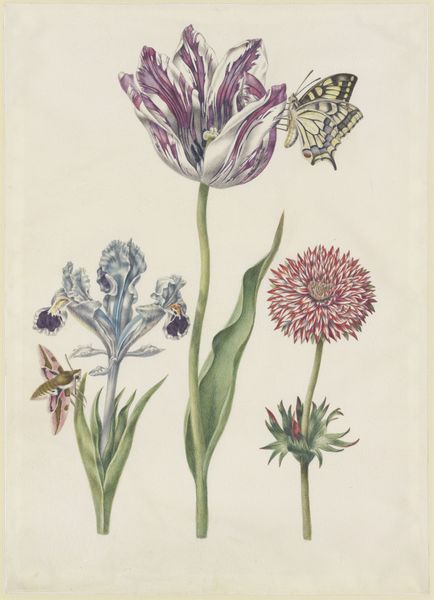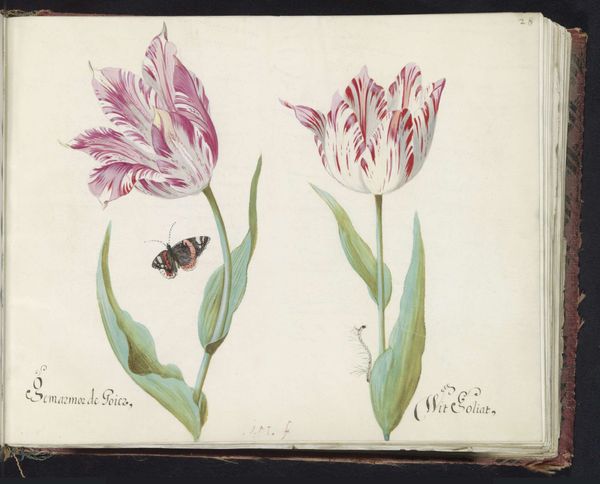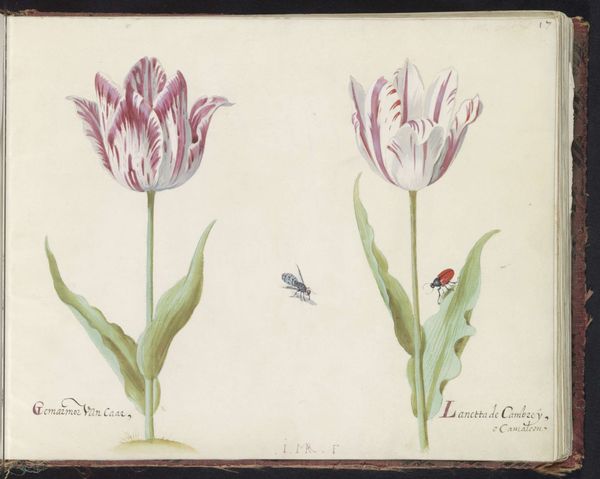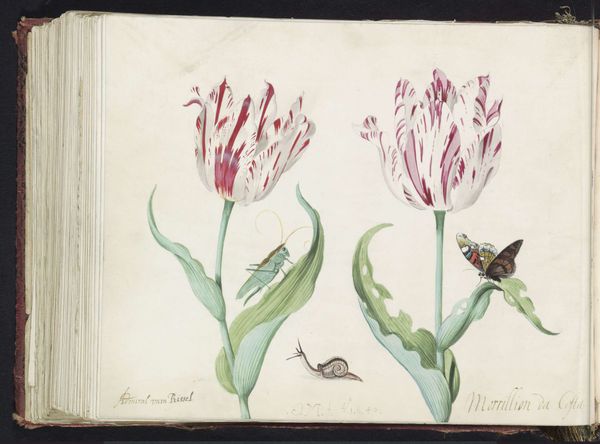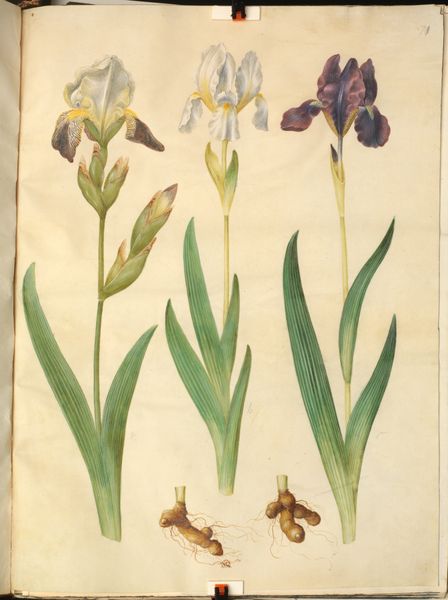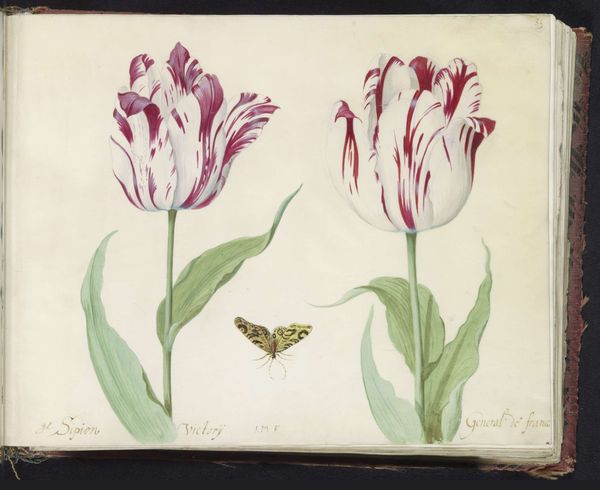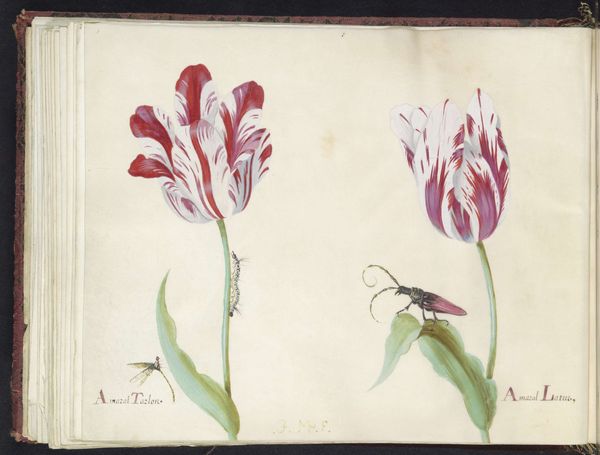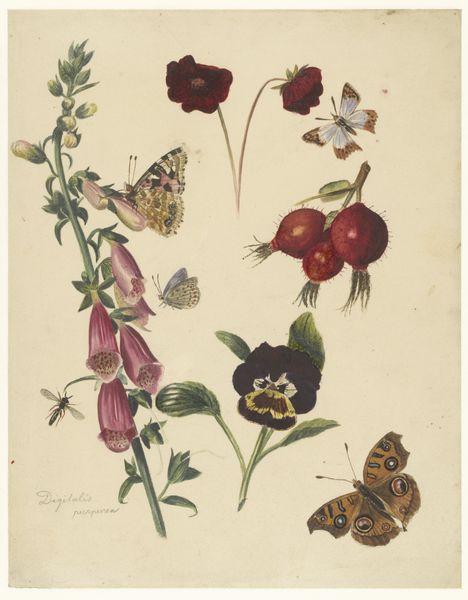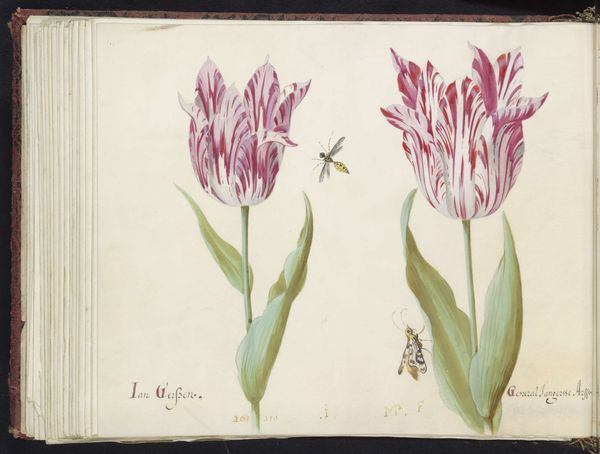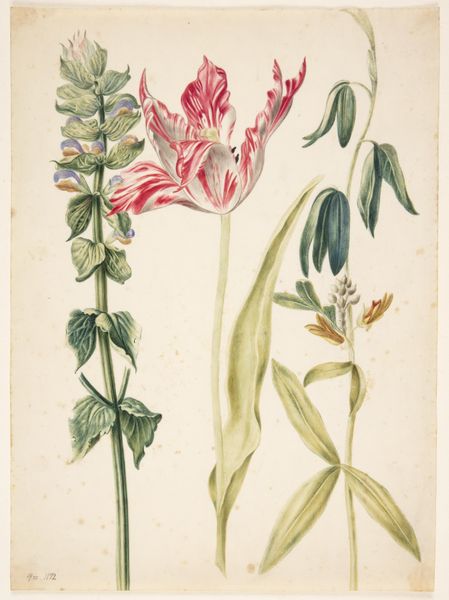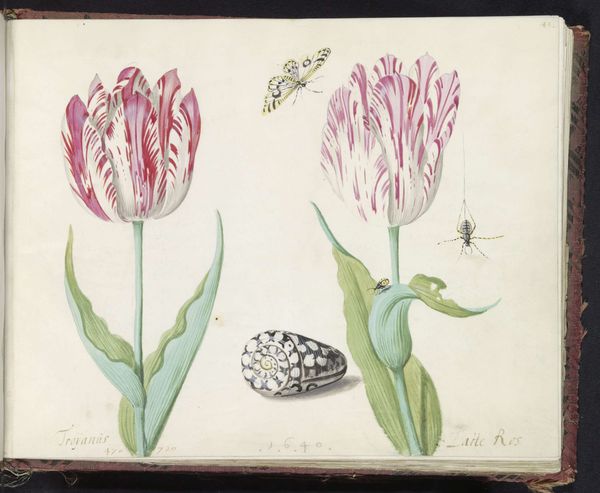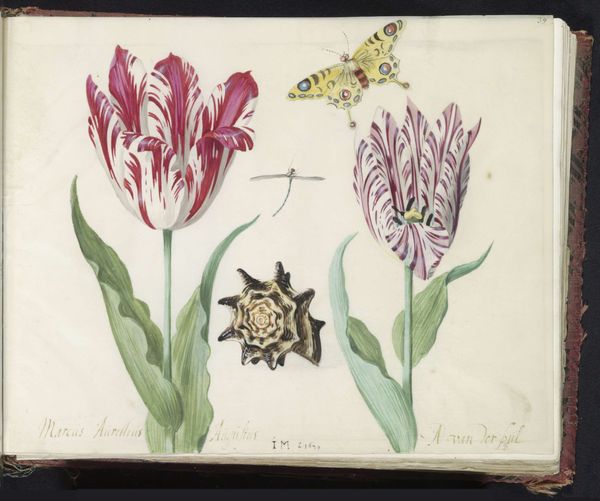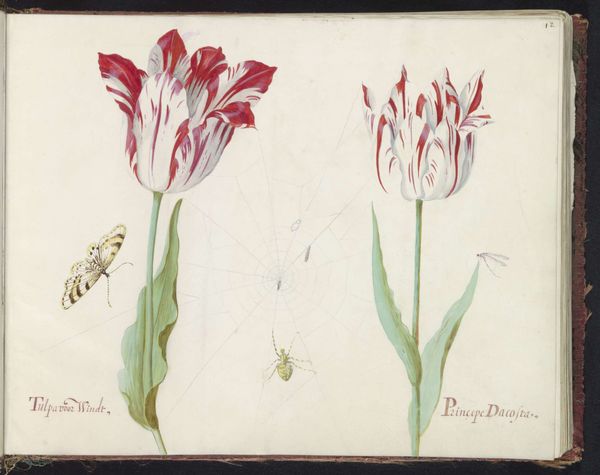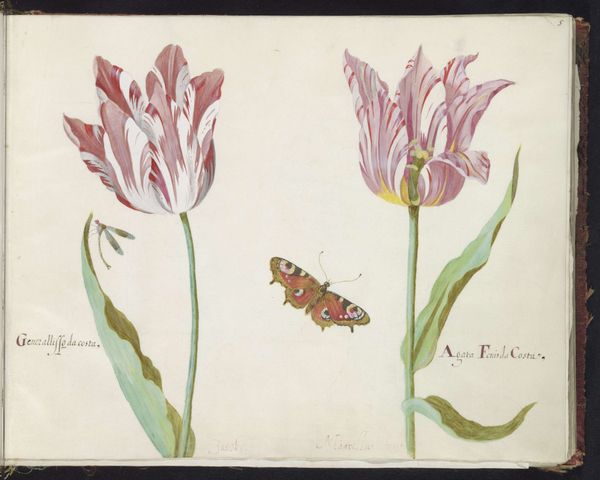
Catchfly with admiral, rose with fox moth, iris, hoverfly, jewel beetle and orchid after 1691
0:00
0:00
drawing, painting, gouache
#
drawing
#
baroque
#
animal
#
painting
#
gouache
#
flower
#
watercolour illustration
#
botanical art
#
realism
Copyright: Public Domain
Maria Sibylla Merian made this watercolor painting of catchfly, admiral, rose, iris and other insects and flowers. Merian was part of a tradition of scientific illustration that flourished in Europe from the 16th century onwards. The rise of natural history as a discipline created new opportunities for artists to document and classify the natural world. This painting reflects the growing interest in empirical observation and scientific inquiry that characterized the 17th and 18th centuries. Merian's work was particularly significant because of her focus on insects and their life cycles. But she also challenged the male-dominated scientific community by publishing her own findings and observations. Historians can use these paintings and texts to understand the ways in which scientific knowledge was produced and disseminated in the early modern period.
Comments
stadelmuseum about 2 years ago
⋮
For centuries, the watercolour has been used for the naturalistic reproduction of the plant kingdom. Maria Sibylla Merian harmoniously places the catchfly, rosebud, iris and monkey orchid side by side on the precious parchment. Her accurately detailed botanical studies are at the same time investigations into nature, hovering between science and art. She also appealed to a wide audience as a publisher of books.
Join the conversation
Join millions of artists and users on Artera today and experience the ultimate creative platform.
